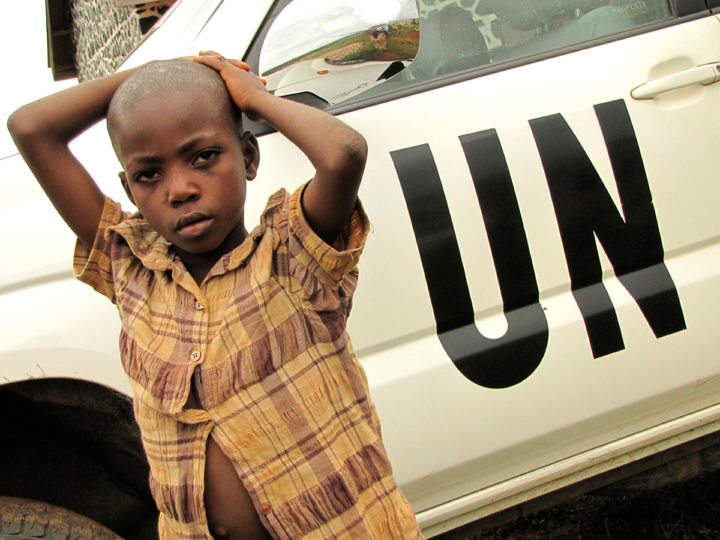Children in conflict zones are safer thanks to robust guidelines developed by Professor Rosa Freedman in partnership with the specialist organisation, Keeping Children Safe. The guidelines are transforming the way peacekeeping forces are recruited and trained and help ensure international standards for child safeguarding are applied worldwide.
Most peacekeeping personnel do their jobs with courage, dedication and professionalism. But those who commit sexual offences bring shame on the entire United Nations system and betray the trust of those they are sent to protect. Current laws, policies and practices to tackle child sexual exploitation and abuse lack consistency across organisations within the UN, making effective solutions difficult to deliver.
Human rights lawyer Professor Rosa Freedman has worked in partnership with the specialist organisation Keeping Children Safe to develop a safeguarding toolkit to tackle this complex challenge. It includes guidance on policy development, procedures, training and accountability measures and has been implemented in thousands of organisations around the world.
The toolkit is based on international standards for child safeguarding and research and engagement with peacekeeping forces in Argentina, Brazil, Ghana, Haiti, Liberia, and Uruguay. It empowers an organisation to assess its policies, consider local and international laws and develop plans that will work within different environments. It helps organisations to demonstrate their commitment to addressing child sexual exploitation and adhere to global standards while ensuring staff understand the local context they are working in.
Professor Freedman now sits on the UN Secretary-General’s Advisory Board on Sexual Exploitation and Abuse and is a Specialist Advisor to the UK Government’s International Development Committee, providing the UN and the UK with the advice they need to ensure children in conflict zones worldwide are protected against exploitation.
Partner: Keeping Children Safe
Funders: Arts and Humanities Research Council, British Academy, Global Challenges Research Fund
Judges’ comment: “This has the potential to go a very long way, contributing to a real shift in attitudes among the United Nations and armed forces about ethical behaviours with civilian populations.”
Shortlisted for the University Research Engagement and Impact Awards 2019 – WINNER
First published: June 2019

